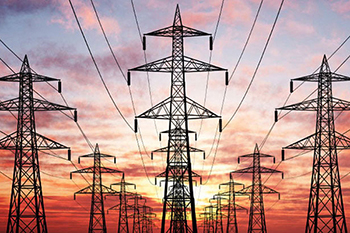Electric Utilities
Bill Sponsors / Authors:
![]() Rep. Ryan Guillen
Rep. Ryan Guillen
R - Rio Grande City
![]() Sen.
Phil King
Sen.
Phil King
R - Weatherford
Supporting Documents / Links:
- Tina Paez Oppose SB 1075
April 11, 2023 - SB 1075 FAQs
April 18, 2023 - YuShan Chang on SB 1075
May 12, 2023
 Senate Bill 1075 - Temporary Emergency Electricity
Senate Bill 1075 - Temporary Emergency Electricity
Senate Bill 1075 proposed changes to Section 39.918 of the Utilities Code, authorizing the use of temporary emergency electric energy facilities (TEEEF) in response to power outages. TEEEFs are mobile power generators that can help supply electricity on a temporary, as needed basis.
Section 39.918, Utilities Code, was passed in 2021 (House Bill 2483 in 87th Session) in the aftermath of Winter Storm Uri to allow transmission and distribution utilities (TDUs) to lease temporary emergency generation to be used during load shed events or otherwise when there is a widespread power outage, such as after a storm or hurricane.
Protections were included such that this temporary emergency generation did not compete with competitive generation or otherwise distort the generation market. These assets may only be used to protect public health and safety in emergencies, not to sell power into the wholesale market.
Senate Bill 1075 maintains the market safeguards from the 2021 legislation to prevent these emergency assets from competing with competitive generation or distorting that market. But it allows utility ownership of those assets so that this public health and safety tool is less expensive to utility customers.
Additionally, there were concerns regarding Senate Bill 1075 on what events it would apply to.
The City of Houston testified, “TEEEF deployment is extremely costly, due to the need to relocate these very large and expensive generation units, which involves commissioning and decommissioning the units, transporting them over possibly great distances and significant fuel costs.” It was important for ratepayers to be protected with defined events that deployment would apply to.
The original language of the bill described a power outage from a "widespread power outage," which is defined as an event that results in a risk to public safety and a loss of electric power that affects a significant number of distribution customers of a TDU (in Houston’s case, Centerpoint) and has lasted or is expected to last for at least eight hours.
It was amended to a "significant power outage," which the bill defines as an event that causes the independent system operator to order a TDU to shed load or results in a loss of electric power that, as follows:
- affects a significant number of distribution customers of a TDU and has lasted or is expected to last for at least six hours;
- affects distribution customers of a TDU in an area for which the governor has issued a disaster or emergency declaration;
- affects distribution customers served by a radial transmission or distribution facility, creates a risk to public health or safety, and has lasted or is expected to
last for at least 12 hours; or - creates a risk to public health or safety because it affects a critical infrastructure facility that serves the public such as a hospital, health care facility, law
enforcement facility, fire station, or water or wastewater facility
The City of Houston supported the amendments to Senate Bill 1075 to limit the use of TEEEFs to when there is mandatory load shedding.
At the end of the day, Houston wants ratepayers to be protected, and felt the final version of Senate Bill 1075 to be a much better product than the originally filed bill and provides elements of cost saving by allowing TDUs to own rather than lease TEEEFs.
Bill was attached to House Bill 1500 (the PUC Sunset bill – page 40)